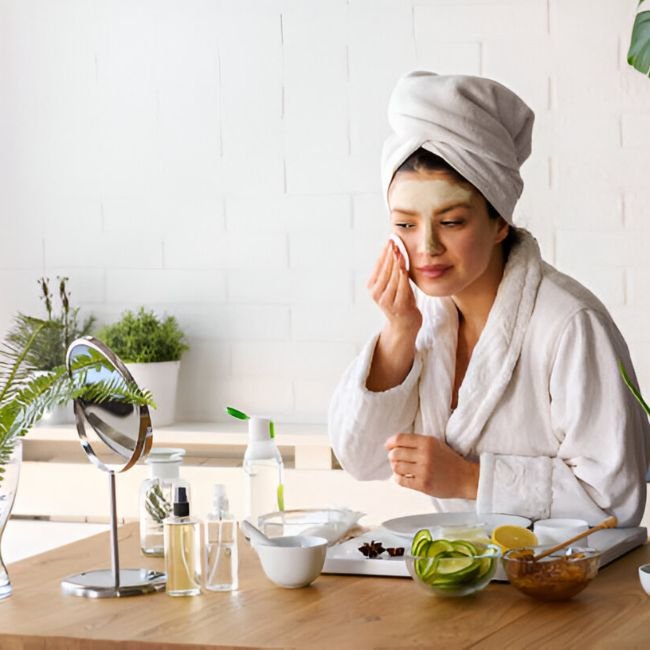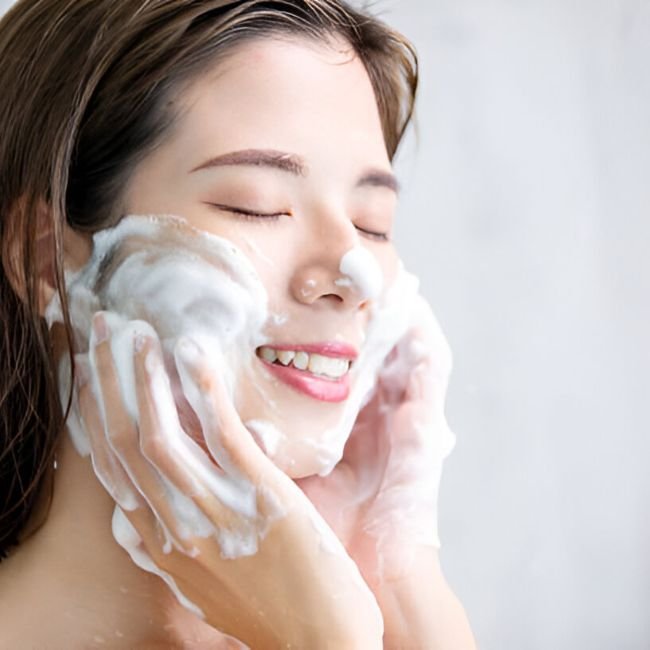Understanding Teenage Skincare
Teenage skin undergoes significant changes due to hormonal fluctuations, leading to common issues like acne, oily skin, and sensitivity. Understanding the unique needs of adolescent skin is crucial for maintaining healthy and clear skin during these formative years.
Importance of Skincare for Teenagers
Proper skincare during adolescence can prevent long-term skin issues, boost self-esteem, and establish healthy habits for life. With the right guidance, teenagers can navigate the complexities of skincare and achieve a radiant complexion.
Types and Categories of Teenage Skin
Identifying Skin Types
Oily Skin
Characterized by excess sebum production, oily skin is prone to acne and blackheads. Teens with oily skin should focus on oil control and gentle cleansing.
Dry Skin
Dry skin lacks moisture and can appear flaky or rough. Hydration and gentle, nourishing products are essential for maintaining skin balance.
Combination Skin
A mix of oily and dry areas, combination skin requires a tailored approach to address varying needs in different facial zones.
Sensitive Skin
Easily irritated and prone to redness, sensitive skin requires gentle, hypoallergenic products to avoid reactions.
Common Skin Issues in Teenagers
Acne
Acne is a prevalent concern for teenagers, often caused by hormonal changes and excess oil production. Effective acne treatment can prevent scarring and improve skin appearance.
Blackheads and Whiteheads
Clogged pores cause these common forms of acne and require specific treatments to clear and prevent recurrence.
Enlarged Pores
Oily skin and acne can lead to enlarged pores, which may require targeted skincare products to minimize their appearance.
Symptoms and Signs of Skin Issues
Recognizing Acne
Types of Acne
- Comedonal Acne: Includes blackheads and whiteheads, caused by clogged pores.
- Inflammatory Acne: Characterized by red, swollen pimples and cysts, often painful.
Identifying Skin Sensitivity
Signs of Sensitive Skin
- Redness and irritation
- Burning or stinging sensation
- Dryness and flakiness
Detecting Dehydrated Skin
Symptoms of Dehydrated Skin
- Tightness and dullness
- Increased sensitivity
- Fine lines and rough texture
Causes and Risk Factors
Hormonal Changes
Hormonal fluctuations during puberty increase sebum production, leading to common teenage skin issues like acne and oiliness.
Lifestyle Factors
Diet, stress, and sleep patterns can significantly impact skin health. A balanced lifestyle supports better skin conditions.
Environmental Influences
Exposure to pollution, UV rays, and harsh weather can exacerbate skin problems, making protective skincare crucial.
Diagnosis and Tests
Dermatological Assessment
Consulting a dermatologist can help identify skin type and specific issues, leading to personalized treatment plans.
Patch Testing
Patch testing can determine product compatibility and prevent adverse reactions for sensitive skin.
Hormonal Testing
In cases of severe acne, hormonal testing may be recommended to identify underlying imbalances.
Treatment Options
Over-the-Counter Products
Cleansers
Gentle cleansers remove dirt and oil without stripping the skin, forming the foundation of a skincare routine.
Moisturizers
Non-comedogenic moisturizers hydrate without clogging pores, essential for all skin types.
Spot Treatments
Targeted treatments with ingredients like benzoyl peroxide or salicylic acid effectively treat acne lesions.
Prescription Medications
Topical Retinoids
These vitamin A derivatives help unclog pores, reduce inflammation, and improve skin texture.
Oral Antibiotics
In cases of severe acne, antibiotics can reduce bacteria and inflammation from within.
Natural Remedies
Aloe Vera
Known for its soothing properties, aloe vera can calm irritated skin and reduce redness.
Tea Tree Oil
With antibacterial effects, tea tree oil is a popular natural remedy for acne-prone skin.
Preventive Measures
Daily Skincare Routine
Cleansing
Morning and evening cleansing remove impurities and prepare the skin for treatment and hydration.
Sun Protection
Daily use of sunscreen prevents UV damage and premature aging, essential for long-term skin health.
Lifestyle Adjustments
Balanced Diet
A diet rich in fruits, vegetables, and whole grains supports healthy skin from the inside out.
Stress Management
Techniques like meditation and exercise can reduce stress, positively impacting skin conditions.
Personal Stories or Case Studies
Teenage Skincare Journeys
Emily’s Battle with Acne
Emily shares her journey from severe acne to clear skin, highlighting the treatments and lifestyle changes that made a difference.
Jacob’s Experience with Sensitive Skin
Jacob discusses how he managed his sensitive skin through trial and error, finding the right products and routine for his needs.
Expert Insights
Dermatologist Tips for Teen Skincare
Dr. Smith’s Advice on Acne Treatment
Dr. Smith emphasizes the importance of a consistent skincare routine and professional guidance for managing acne effectively.
Nutritionist Recommendations for Skin Health
Dietary Tips from Nutritionist Laura
Laura provides insights on how a balanced diet can enhance skin health and reduce inflammation.
Conclusion
Teenage skincare requires a comprehensive approach, considering individual skin types, common issues, and effective treatments. With the right knowledge and products, teenagers can achieve healthy, glowing skin.




